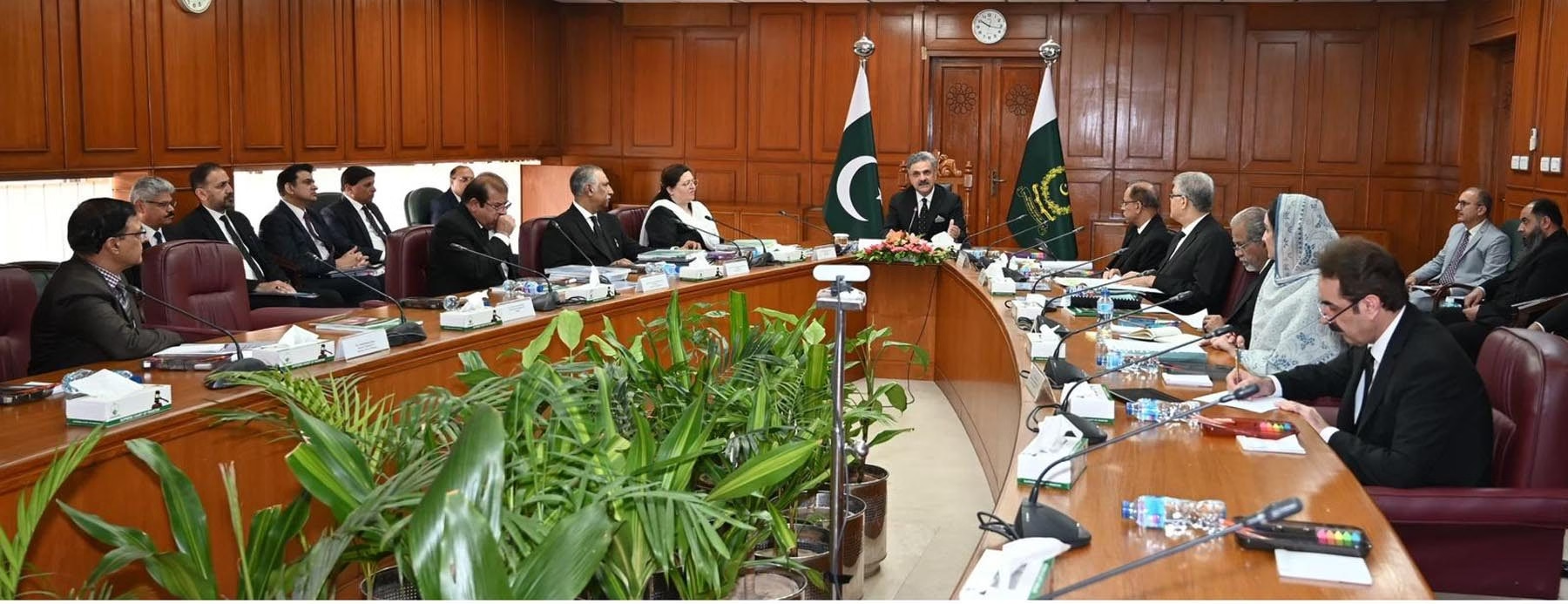The Supreme Judicial Council (SJC) is holding a pivotal meeting today, led by Chief Justice of Pakistan Justice Yahya Afridi. Senior judges including Justice Mansoor Ali Shah and Justice Munib Akhtar of the Supreme Court are participating as Council members. Additionally, Lahore High Court Chief Justice Aalia Neelum and Sindh High Court Chief Justice Junaid Ghaffar are in attendance.
According to sources, the Council is set to undertake a detailed review of complaints filed against members of the judiciary. The meeting will also evaluate existing rules and procedures, and deliberate on the judicial code of conduct—particularly in light of recent communications from senior judges. This meeting is regarded as an essential effort to promote transparency, accountability, and high ethical standards within the judiciary. The performance and conduct of judges are also expected to be assessed.
As a constitutionally mandated institution, the SJC plays a critical role in maintaining judicial integrity and strengthening public trust in the legal system.
Meanwhile, the National Judicial (Policy Making) Committee (NJPMC) has taken a significant step by forming a dedicated committee to address enforced disappearances within an institutional framework. The decision was made during the NJPMC’s 53rd meeting, chaired by Chief Justice Yahya Afridi at the Supreme Court and attended by all high court chief justices and the Additional Attorney General for Pakistan.
The new committee will examine concerns raised by the executive, particularly those communicated by the Attorney General. The NJPMC reaffirmed its commitment to upholding constitutional rights and also directed high courts to implement formal mechanisms for protecting judicial officers from external pressures.
Several major reforms were approved at the meeting. These include:
- Establishment of a Commercial Litigation Corridor with specialized courts and benches
- Launch of a pilot Double-Docket Court Regime in selected districts
- Introduction of court-annexed mediation, Model Criminal Trial Courts, and district-level family and mediation courts
- Formation of a performance evaluation committee, led by Justice (retd) Rehmat Hussain Jafferi, to create standard indicators and address disparities in judicial training and services
- Creation of a Professional Excellence Index for lawyer induction, with high courts instructed to submit proposals within 30 days
The ethical use of generative AI in judicial processes was also discussed. The National Judicial Automation Committee has been tasked with drafting a guiding charter on its integration.
Other key decisions included approval of SOPs for virtual court attendance of undertrial prisoners and police witnesses, and enhanced judicial training for police officers through specialized academies, as detailed in a presentation by Punjab’s Inspector General of Police.
Finally, acting on a request from the Additional Attorney General, the NJPMC decided that constitutional petitions involving tax and finance matters will now be heard by division benches instead of single-member benches in the high courts.



